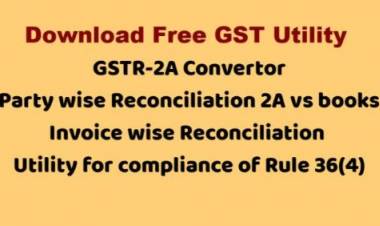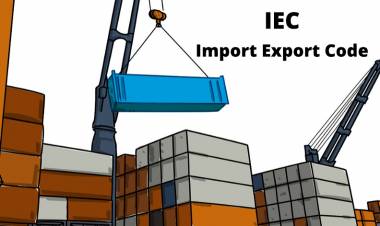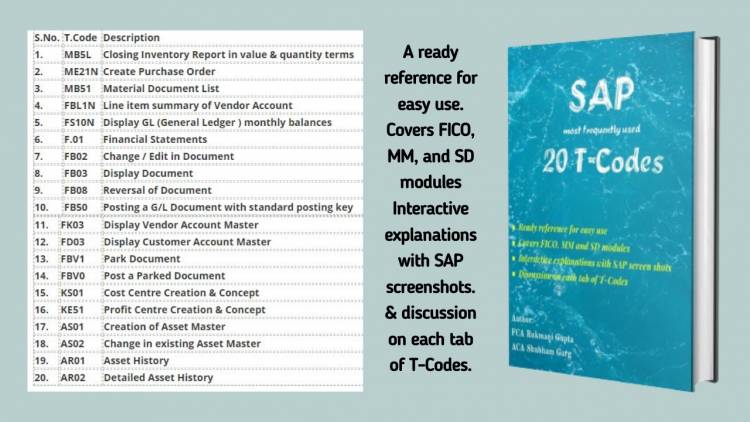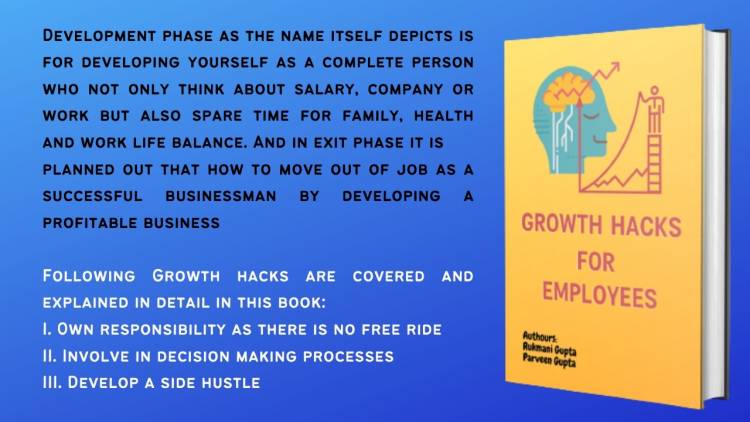Assessment Procedure in Income Tax – Part I
Assessment Procedure in Income Tax – Part I
Assessment in income tax is estimation of total income and tax thereon either by assessee himself or by income tax officer. Assessment is broadly covered in following types:
(2) Summary assessment u/s 143(1)
(3) Scrutiny assessment u/s 143(3)
(4) Best judgment assessment u/s 144 - covered in part II
(5) Protective assessment - covered in part II
(6) Income escaping assessment u/s 147- covered in part II
(7) Assessment in case of search u/s 153A - cshall cover separately
(1) Self-assessment u/s 140A
Every assessee before filing income tax return under various sections viz. 139, 142(1), 148 or 153A is supposed to find whether he is liable for any tax, interest or penalty. For this purpose section 140A has been introduced in Income tax act.
Procedure of self-assessment is as follows:
Self-assessment calculation Summary:
|
|
Particulars Compute total income Calculate tax payable on total income |
Amount XX XX |
|
Add |
Edu. Cess +Surcharge if any |
XX |
|
Less Less |
Relief under section 89, 90, 91 & 90A MAT credit under 115JAA or 115JD |
XX XX |
|
Less |
TDS/TCS |
XX |
|
Less |
Advance tax Paid, if any |
XX |
|
Add |
Interest u/s 234A, 234B, 234C |
XX |
|
Amount |
Payable as Self-Assessment u/s 140A |
XX |
If any amount is payable under section 140A then amount so paid shall be adjusted against interest payable first and then balance amount to be adjusted toward tax payable.
Enquiry before assessment - secton 142
Section 142(1) – for making assessment, the assessing officer may take any / all of the following steps:
- Notice u/s 142 (1)(i): this notice can be issued to assessee (only those who have not filed return) requiring him to furnish return when no any return has been u/s 139(1) has been filed, within the time allowed u/s 139(1) or before the end of the relevant assessment year.
- Notice u/s 142 (1)(ii): this notice can be issued to all assessees who filed return or not to produce or cause to be produced such accounts or documents as the assessing officer may require but shall not require the assesse to produce any accounts relating to period of more than three years prior to the previous year along with accounts of previous year under assessment.
Example: suppose assessment for AY 2018-19 is to be made then accounts for last 3 years FY 2014-15, FY 2015-16, FY 2016-17 and previous year 2017-18 may be required by officer.
- Notice u/s 142 (1)(iii): this notice can be issued to ay assessee who has filed a return of income of whose time to file return u/s 139(1) has been expired, to furnish, in writing and verified in prescribed manner information in such form as he may require and he may also ask for a statement of all assets and liabilities of the assessee for any number of previous year.
Enquiry from other u/s 142(2):
This section empowers assessing officer to collect information from sources other than assessee in view of the provisions of sections 131, 133(6), 142(2).
Audit of accounts u/s 142(2A) to (2D):
The assessing officer may, at any time at any stage of the assessment, direct the assesse to get the accounts audited by a Chartered Accountant nominated by Chief Commissioner / Commissioner of Income Tax, such a decision may be taken by assessing officer, if having regard to the nature, volume, multiplicity of transactions, doubts about the correctness of accounts, specialized nature of business activity and in the interest of revenue is of opinion that it is necessary to do so.
Above direction of Audit can be given even if accounts are already audited under the income tax Act or any other law.
Audit report instructed under this notice shall be submitted in Form 6B not later than 180 days from the date of such direction.
Expenses of such Audit determined by Chief Commissioner / Commissioner shall be paid by Central Govt.
Section 142(3): The assessing officer before using such information gathered u/s 142(2) and 142(2A) for any assessment shall give an opportunity of being heard to the assessee. However no such opportunity is necessary when the assessment is made u/s 144.
Consequences of non-compliance of section 142(1) and section 142(2A):
- best judgement assessment u/s 144
- penalty u/s 271(1)(b) which has been fixed at Rs. 10000/-
- prosecution u/s 276D – rigorous imprisonment up to 1 year or fine from Rs. 4 to Rs. 10 per day or both
- issue of warrant u/s 132 for search
(2) Summary Assessment u/s 143(1)
Where a return under section 139 or in response to notice under section 142 (1) is filed then u/s 143(1) this return is checked form the point of arithmetical accuracy and will not be scrutinized in detail, in following way:
1) the total income or loss shall be computed after making the following adjustments, namely:—
(i) any arithmetical error in the return; or
(ii) an incorrect claim, if such incorrect claim is apparent from any information in the return;
(iii) disallowance of loss claimed, if return of the previous year for which set off of loss is claimed was furnished beyond the due date specified under sub-section (1) of section 139;
(iv) disallowance of expenditure indicated in the audit report but not taken into account in computing the total income in the return;
(v) disallowance of deduction claimed under sections 10AA, 80-IA, 80-IAB, 80-IB, 80-IC, 80-ID or section 80-IE, if the return is furnished beyond the due date specified under sub-section (1) of section 139; or
(vi) addition of income appearing in Form 26AS or Form 16A or Form 16 which has not been included in computing the total income in the return. However no adjustment shall be made under this in relation to a return furnished for the assessment year commencing on or after the 1st day of April, 2018
However no such adjustments shall be made unless intimation is given to the assessee of such adjustments either in writing or in electronic mode:
The response received from the assessee, if any, shall be considered before making any adjustment, and in a case where no response is received within thirty days of the issue of such intimation, such adjustments shall be made.
2 .the tax and interest, if any, shall be computed on the basis of the total income computed under clause (a);
3. the sum payable by, or the amount of refund due to, the assessee shall be determined after adjustment of the tax and interest and fee, if any, computed under clause (b) by any tax deducted at source, any tax collected at source, any advance tax paid, any relief allowable under an agreement under section 90 or section 90A, or any relief allowable under section 91, any rebate allowable under Part A of Chapter VIII, any tax paid on self-assessment and any amount paid otherwise by way of tax or interest and fee;
4. an intimation shall be prepared or generated and sent to the assessee specifying the sum determined to be payable by, or the amount of refund due to, the assessee under clause (c); and
5. the amount of refund due to the assessee in pursuance of the determination under clause (c) shall be granted to the assessee.
An intimation u/s 143(1) shall also be sent if loss declared is adjusted but no any tax/interest/fee/ is payable by or no refund is due to him.
No intimation u/s 143(1) shall be sent after the expiry of one year from the end of the financial year in which return is filed. In case of revised return (section 139(5)) the one year period shall be counted from end of financial year in which return was revised.
3. Scrutiny assessment u/s 143(3)
Scrutiny assessment u/s 143(3) is also known as regular assessment.
To initiate assessment u/s 143(3), assessing officer has to issue notice u/s 143(2), which can only be issued in case where return u/s 139 or in response to section 142(1) has been filed by the assessee. Means notice u/s 143(2) and assessment u/s 143(3) cannot be issued / done if no return is filed.
Assessing officer, u/s 143(2), if consider it necessary or expedient to ensure that –
- the assessee has not understated the income or
- has not computed excessive loss or
- has not under paid the tax in any manner
shall require assessee to attend his office to produce documents / evidences in support of return.
Note:
- No notice u/s 143(2) shall be served on the assessee after the expiry of 6 months from the end of financial year in which return is furnished.
Example: suppose return for FY 2016-17 was filed on 30/07/2017 then notice u/s 143(2) can be issued on or before 30/09/2018
Suppose above return was revised on 24/05/2018 then notice u/s 143(2) can be issued on or before 30/09/2019.
- Fresh notice u/s 143(2) is requied to be issued if return is revised u/s 139(5).
- Non-compliance of notice u/s 143(2) may result in ex parte, best judgement assessment u/s 144 and may also attract penalty u/s 271(1)(b) which has been fixed at Rs. 10000/-.
Assessment u/s 143(3)
On the day specified in the notice issued under sub-section (2), or as soon afterwards as may be, after hearing such evidence as the assessee may produce and such other evidence as the Assessing Officer may require on specified points, and after taking into account all relevant material which he has gathered, the Assessing Officer shall, by an order in writing, make an assessment of the total income or loss of the assessee, and determine the sum payable by him or refund of any amount due to him on the basis of such assessment.
2. No order of assessment/ reassessment under section 143(3) shall be made after the expiry of 21 months (18 months for A.Y. 2018-19 and 12 months wef A.Y. 2019-20) from the end of relevant Assessment Year.
Example: Last date for assessment order u/s 143(2):
for FY 2015 -16 (AY 2016-17) - 31st Dec. 2018
for FY 2016 -17 (AY 2017-18) - 31st Dec. 2019
for FY 2017 -18 (AY 2018-19) - 30th Sep. 2020
for FY 2018 -19 (AY 2019-20) - 31st Mar. 2021
3. Where a reference has been made to Transfer Pricing Officer to determine Arm’s Length Price, then no order of assessment/ reassessment under section 143(3) shall be made after the expiry of 33 months (30 months for A.Y. 2018-19 and 24 months wef A.Y. 2019-20) from the end of relevant Assessment Year.
 Download APP
Download APP
 P K Gupta
P K Gupta 





































